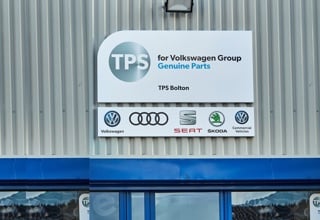Many dealerships and independent services centres (ISCs) are facing significant challenges in the form of cost pressures due to inflation and ongoing supply chain disruption.
All this at a time when consumers are looking to spend less on maintaining and servicing their vehicles due to the cost-of-living crisis. But could they be doing more to engineer their way to a more stable and profitable future?
The automotive aftermarket is facing a perfect storm, and for many businesses in the sector, trading conditions have never been tougher.
Parts shortages and rising inflation have driven up costs across the board for staples such as fluids and parts, through to labour and transportation. These pressures have eroded margins at a time when motorists are choosing to keep their cars for longer and conserving cash by turning down non-urgent repair work more frequently.
Streamlining processes
For many ISCs and dealership workshops, the low-margin, high-volume nature of their business model means that they have little choice but to pass on cost increases to customers. Confirming this, research conducted by the Motor Ombudsman earlier this year shows that 63% of independent garages and dealership workshops were intending to increase prices before the end of the year.
But can consumers afford to pay? The Office for National Statistics (ONS) has recently published data showing that the cost of running and maintain a vehicle, or other form of personal transport, is rising at above the rate of inflation.
With new passenger car registrations down significantly on pre-pandemic levels - about 1.6 million in 2020 - the UK’s car parc is aging, which means demand for repair and servicing work is likely to increase.
This demand is taking time to filter through to the aftermarket however, and some independent services centres and dealership workshops are being forced to take difficult decisions now. Retaining skilled staff is a key concern, which in turn is contributing to wage inflation.
Many motorists have their own stories to tell about how parts shortages have affected their day-to-day lives. For me, a simple windscreen wiper motor proved incredibly challenging to source and the workshop that ended up fitting the part, didn’t believe that I actually had one. For many ISCs and dealerships, the lack of certainty about parts availability is making it difficult to plan ahead.
Part of the problem here could lie in inefficient processes and a lack of data understanding. For example, motorists will take their car in for a service and expect it back the same day, with repairs completed and replacement parts fitted. This places an enormous reliance on the distributor network, which has to respond to orders quickly, sometimes making multiple drop-offs in a single day.
Instead, better use of historical data could be used to inform predictive systems, so consumers know when they might need to replace their brake pads, for example, which allows them to take pre-emptive action.
Data-based systems would enable motorists to book their cars in for repairs well in advance and the workshop could ensure the relevant parts are available in advance.
Another facet to this problem is the motorist’s over-reliance on knowledge owned by the mechanic, which in some cases is perpetuated by a lack of interest in what’s going on under the bonnet. This leads to consumer mistrust when the cost of servicing and repair work inevitably start to rise.
With costs increasing rapidly, some ISCs and dealership workshops are concerned that they could be reaching a tipping point, beyond which they are losing money.
Understanding the economic model
To protect their business from becoming unviable, they need a detailed understanding of their economic model and ensure they are apportioning the right cost for labour, equipment and parts to the right job.
Better understanding of their cost base will also make it easier to discuss costs openly with customers.
Armed with this understanding, businesses could also explore opportunities to realise cost savings and improve operational efficiency. For example, it may be worth buying some critical parts, such as brake pads, direct from a manufacturer, rather than buying through a distributor.
These parts are not perishable and could be stored by the business relatively easily, as long as they have the required floorspace. This approach could lower transportation costs and reduce reliance on Just-in-Time or Just-in-Sequence deliveries.
Close analysis of historical data could help to identify opportunities to streamline processes and improve efficiency.
As well as understanding which parts are in high demand, an analysis of how frequently orders are placed could flag opportunities to negotiate with suppliers by ordering in more volume less frequently.
Establishing a close working relationship with a distributor could also help to unlock knowledge about alternative parts. Greater collaboration could identify opportunities to make use of parts that are the same quality as the manufacturer’s own, or those that are lesser quality, but perfectly adequate for a specific type of job.
Businesses could also explore whether it is possible to schedule jobs more efficiently.
Could some jobs be outsourced to alleviate pressure in terms of demand for bays? Or could some jobs be prioritised over others, whereby the customer agrees to collect their vehicle the following day?
Anything that could be done to reduce time spent on diagnostics will help to improve perceived customer value, whether that’s through improved diagnostic equipment or technician training.
Technology is evolving all the time, so ISCs and dealerships need access to the latest information and manufacturers’ support information in order to function efficiently.
Using cost and value engineering and strategic sourcing strategies, informed by reliable data, can help ISCs and dealership workshops to stay profitable and secure a more stable platform for growth in a demand-driven industry.
Author: Dominic Tribe is a partner and automotive sector specialist at top-20 management consultancy, Vendigital





















Login to comment
Comments
No comments have been made yet.